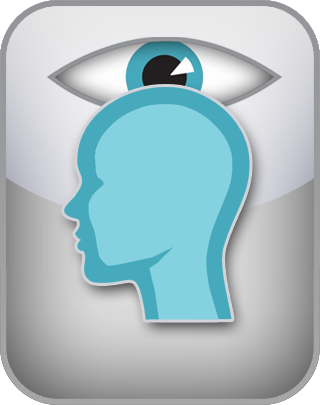Academically reviewed by Dr. Jennifer Schulz, Ph.D., associate professor of psychology
3 Minute Paranoid Disorder Test
Based on the work of Dr. David Rawlings, D.Phil.
Instructions: Below is a list of questions that relate to life experiences common among people who have been diagnosed with Paranoid Personality Disorder (PPD). Please read each question carefully, and indicate whether it applies to you or not.
Your privacy is protected. All results are anonymous.
Question 1 of 10
Many of the people in my life secretly want to harm, exploit, or deceive me.
NEXT
The IDRlabs 3 Minute Paranoid Personality Disorder Test (IDR-3MPPDT) was developed by IDRlabs. The IDR-3MPPDT is based on the work of Dr. David Rawlings and Justin L. Freeman, who created the Paranoia/Suspiciousness Questionnaire (PSQ). The IDR-3MPPDT is not associated with any specific researchers in the field of psychopathology or any affiliated research institutions.
The IDRlabs 3 Minute Paranoid Personality Disorder Test was informed by the PSQ’s criteria for Paranoid Personality Disorder as published in Rawlings, D. & Freeman, J. (2015). Measuring paranoia/suspiciousness. Schizotypy: Implications for Illness and Health, DOI: 10.1093/med:psych/9780198523536.001.0001; Rawlings, D. & Freeman, J. (1996). A questionnaire for the measurement of paranoia/suspiciousness. British Journal of Clinical Psychology; Tiegreen, J., & Combs, D. An examination of sub-clinical paranoia in a correlational setting. Journal of Experimental Psychopathology, 8 (3), pp. 320-331; Freeman, D., Bentall, R., & Garety, P. (2008). Persecutory delusions: The assessment of persecutory ideation. Oxford University Press.
The work of Dr. Rawlings and Freeman has also informed some of the diagnostic criteria in the form of the widely used psychological instrument, the PSQ, for clinical use especially by qualified mental health professionals. The present test is intended for educational purposes only. IDRlabs and the present IDRlabs 3 Minute Paranoid Personality Disorder Test are independent of the above researchers, organizations, or their affiliated institutions.
The 3 Minute Paranoid Personality Disorder Test is based on a famous and well-regarded inventory for the assessment of the clinical concept of Paranoid Personality Disorder, which is a cluster A personality disorder. However, free online tests and quizzes such as this one are solely initial considerations and cannot provide accurate assessments of your potential personality disorder. Hence, the test is intended to be used for educational purposes only. A definitive mental health assessment can be made only by a qualified mental health professional.
As the publishers of this free online 3 Minute Paranoid Personality Disorder Quiz, which allows you to screen yourself for the signs and symptoms of this personality disorder, we have strived to make the test as reliable and valid as possible by subjecting this test to statistical controls and validation. However, free online quizzes such as the present 3 Minute Paranoid Personality Disorder Test do not provide professional assessments or recommendations of any kind; the test is provided entirely “as-is.” For more information about any of our online tests and quizzes, please consult our Terms of Service.
References
- Freeman, D., Bentall, R., & Garety, P. (2008). Persecutory delusions: The assessment of persecutory ideation. Oxford University Press. https://www.oxfordclinicalpsych.com/view/10.1093/med:psych/9780199206315.001.0001/med-9780199206315-interactive-pdf-002.pdf.
- Rawlings, D. & Freeman, J. (2015). Measuring paranoia/suspiciousness. Schizotypy: Implications for Illness and Health, DOI: 10.1093/med:psych/9780198523536.001.0001.
- Rawlings, D. & Freeman, J. (1996). A questionnaire for the measurement of paranoia/suspiciousness. British Journal of Clinical Psychology. https://doi.org/10.1111/j.2044-8260.1996.tb01199.x
- Tiegreen, J., & Combs, D. An examination of sub-clinical paranoia in a correlational setting. Journal of Experimental Psychopathology, 8 (3), pp. 320-331.

 English
English  Español
Español  Português
Português  Deutsch
Deutsch  Français
Français  Italiano
Italiano  Polski
Polski  Türkçe
Türkçe  العربية
العربية  ไทย
ไทย  Bahasa
Bahasa 